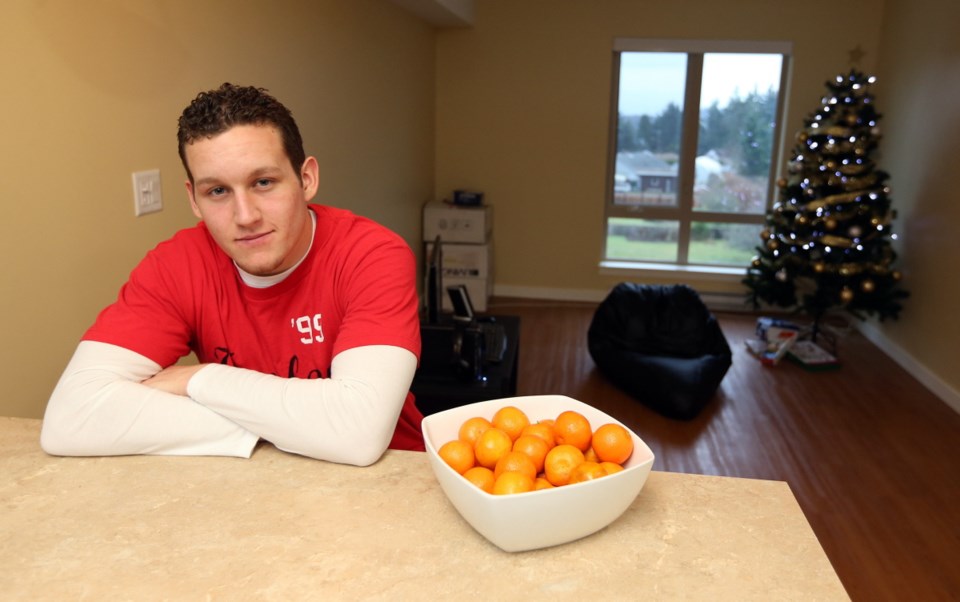When Alexander Patterson started looking for his own place, he was happy to find an online tool that mapped Greater Victoria housing options.
But when the 22-year-old entered his income, every option vanished.
“I thought, that can’t be right,” the Sooke resident said.
Another website suggested low-income housing.
“I actually felt insulted almost, but once I swallowed my pride and started looking around more … I found this place. It’s better than anything else around.”
Patterson is one of the newest residents at the Hope Centre in Sooke, an affordable housing project targeted at youth.
The four-storey building, supported by the M’akola Group of Societies and the Society of Saint Vincent de Paul of Vancouver Island, officially opened last week with 25 housing units.
The Hope Centre, located at 6750 West Coast Rd., is targeted at youth between 19 and 31 who are homeless or at risk of homelessness, with preference given to aboriginal applicants. Applicants should make less than $40,000 per year, said Kevin Albers, CEO of the M’akola Group of Societies.
As someone who didn’t think of himself as needing affordable housing, Patterson found himself in a common situation, Albers said.
“It happens all too frequently. There are families and single people all over Victoria and across the country in dire need of affordable housing,” Albers said. “When your rent exceeds 30 per cent of your household income, there’s a problem.”
Most low-income housing in the capital region is concentrated in downtown Victoria, but a study identified a need for youth housing in Sooke, Albers said.
“The highest need was youth … so we were responding to that identified need,” he said.
Youth face additional challenges when it comes to finding housing.
“They have that inability to qualify for a lot of housing because they don’t have solid references. So it’s a form of discrimination,” Albers said.
Patterson grew up poor, he said, but his family always worked hard and he has set goals for himself, including getting his licence. Several of his past roommates used drugs, and he’s looking forward to a fresh start on his own.
“I wanted to be self-reliant. I didn’t want to put my future in someone else’s hands,” he said.
Living on his own has been an adjustment. He didn’t have any furniture, initially, so he’s planning to put aside money each month to fill his apartment. It’s still sparse: His living room has a desk, a beanbag chair and a Christmas tree.
If the Hope Centre didn’t exist, Patterson said, he thought he could likely find a bachelor suite in a basement for a similar price.
“Honestly, I think I’d feel a little defeated if I were living in my kitchen,” he said. “No offence to anyone who has to do that, but for me, I want to grow and evolve in this environment and I don’t think that would be easy for me in that situation.”
He’s looking forward to making the space his own.
“Once you settle into it, it makes you feel like your own man, your own person.”



